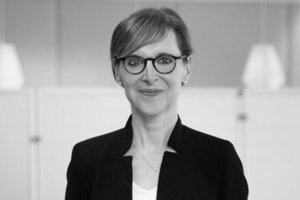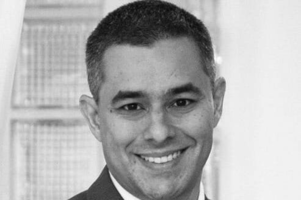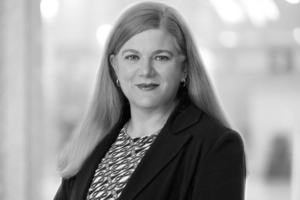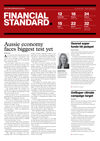Editor's Choice
UN pension chief joins Northern Trust
The head of the United Nations Joint Staff Pension Fund is taking on a new role at Northern Trust Asset Management.
Podcast: Exploring emerging markets and sustainability
Pablo Berrutti, senior portfolio specialist at Stewart Investors, discusses emerging market investment opportunities and their main growth drivers.
Carbon emission stabilisation 'reframes' investment climate risk: Emmi
Latest modelling from Emmi indicates carbon emissions may plateau within the next two years before gradually declining, signalling the first ever emission stabilisation outside of an economic crisis.
Hollywood heavyweights call on pension fund to divest fossil fuels
The likes of Sally Field, Mark Ruffalo and Jane Fonda are calling on the SAG-Producers Pension Plan to dump its holdings in oil and gas companies.


















Congratulations to all involved.
The Future Economy Group can clearly make an important contribution to a more sustainable future.
I have just returned from living in Broome where I founded Low Carbon Kimberley - a not for profit social enterprise seeking to develop community owned solar energy projects, promote energy efficiency and support indigenous employment & community capacity building with support from communities across the Kimberley.
The community solar projects have been initiated myself but supported by a steering committee of community members with backgrounds in remote community administration, research, indigenous co-ordination, corporate governance, community engagement and business.
The overarching objectives of Low Carbon Kimberley's project is to maximise community ownership, retain income and offset the costs of energy for households and businesses, creation local (indigenous) employment opportunities in construction , operation and maintenance, provide access to renewable energy to those that cannot otherwise access or afford it, reduce the current carbon footprint, engage the broader population in the issues of sustainability and climate change and contribute to a sense of community empowerment.
I am passionate about sustainability.
Sustainable development is, however, a much abused term which rarely applies to all four pillars: economic; environmental; social and cultural. Sustainability is not just about conserving nature's resources. It also concerns supporting businesses and communities and culture.
Deep down, Australians want transformational change; they want to live in a different way. In a 2005 survey, Australians were asked which of two positive scenarios of the future they expected and preferred: one focused on individual wealth, economic growth and efficiency, and enjoying 'the good life'; the other on community, family, equality and environmental sustainability. Almost three quarters (73%) expected the former; 93% preferred the latter. (ref: Richard Eckersley)
I believe that the new economy and Asset Based Community Development provides the opportunity and tools for putting communities in control.
The term "new economy" has begun to explode into public use in diverse areas may be an indication that the movement has reached a critical stage of development-and a sign that the domination of traditional thinking may be starting to weaken. Although precisely what "changing the system" means is a matter of considerable debate, certain key points are clear: the movement seeks an economy that is increasingly green and socially responsible, and one that is based on rethinking the nature of ownership and the growth paradigm that guides conventional policies. Or as Al Gore would put it we didn't leave the stone age because we ran out of rocks. We found a better way.
Low Carbon Kimberley is not a pioneer but may prove to be a worthwhile case study. Let me know if I can be of help.